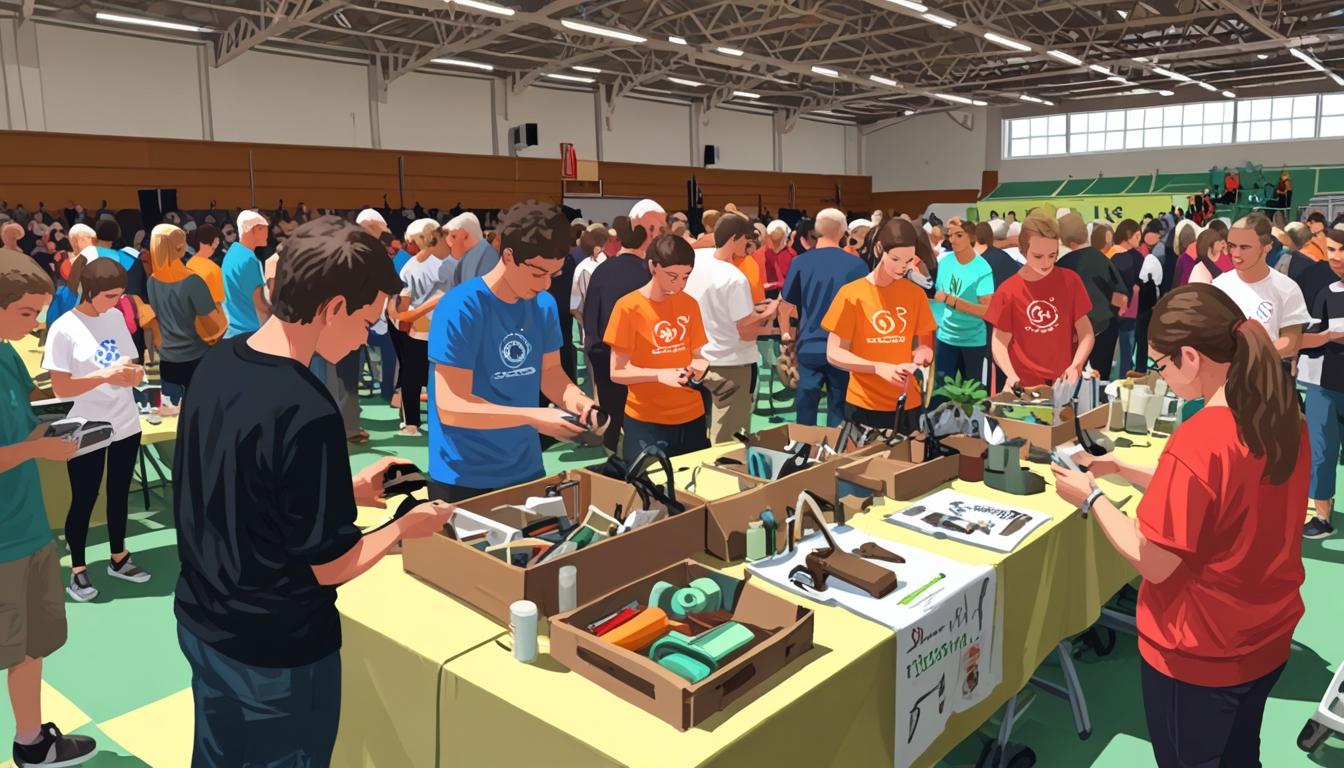The Ottawa Tool Library’s Repair Café event draws community members to extend the life of broken items amid trade tensions with the U.S.
On March 15, the Ottawa Tool Library (OTL) conducted a Repair Café event at the Walter Baker Sports Centre in Barrhaven, attracting community members looking to extend the life of their broken items. This initiative allowed attendees to bring in a variety of damaged appliances and tools for volunteers, skilled in various repair techniques, to fix. If something could not be repaired, OTL assured that items would be recycled properly using their on-site electronic waste bins. The ongoing efforts of the OTL align with a broader local movement focused on sustainability and the promotion of a circular economy.
The Repair Café is part of a growing response by local advocacy groups in Ottawa to the ongoing trade tensions with the United States, where the U.S. government has imposed significant tariffs on Canadian goods, including a 25% tariff on steel and aluminum and a 10% tariff on energy. These policies have created economic instability and have prompted Canadian officials, including Ottawa’s city government, to consider countermeasures. In turn, local advocacy groups are emphasizing the need for residents to support local producers and to reduce overconsumption, thereby solidifying the role of a circular economy within Ottawa.
The Peoples Official Plan (POP) Coalition, comprising organizations such as Ecology Ottawa and Just Food, has been vocal about the need for local focus on food sovereignty, energy sovereignty, and circular economics as an effective counter to the adverse effects of U.S. tariffs. Their letter to Ottawa Mayor Mark Sutcliffe highlighted actionable strategies, including the promotion of local recycling initiatives, a shift towards green procurement, and measures to minimize waste.
Bettina Vollmerhausen, co-founder of OTL, articulated the necessity of such initiatives beyond merely a political context. “It’s not only in a political realm,” she stated, emphasizing the communal responsibility to learn sustainable living practices. She noted that many items often discarded simply require proper repair knowledge—a driving force behind the Repair Café events. The event not only serves to mend broken goods but also aims to educate attendees about maximizing the lifespan of their belongings and minimizing waste.
The City of Ottawa’s support for the OTL includes providing a booth at the Repair Café where city representatives, like Maddie McCrady, the public outreach and communications coordinator for solid waste, engage with participants regarding proper recycling and composting practices. McCrady noted an increased community interest in sustainability, suggesting that this shift could lead to a stronger local economy, especially amidst the backdrop of current trade tensions with the U.S.
The situation has also attracted the attention of the Circular Economy Leadership Canada (CELC), a network that encourages sustainable business practices. CELC is planning the Canadian Circular Economy Summit from April 15-17 in Montreal, which will bring together industry leaders and policymakers to explore the potential of boosting Canadian markets and local supply chains.
Through initiatives such as the Repair Café and a concerted effort to strengthen the local circular economy, Ottawa residents are currently navigating the complexities of international trade policies while fostering community-based solutions to sustainability.
Source: Noah Wire Services




